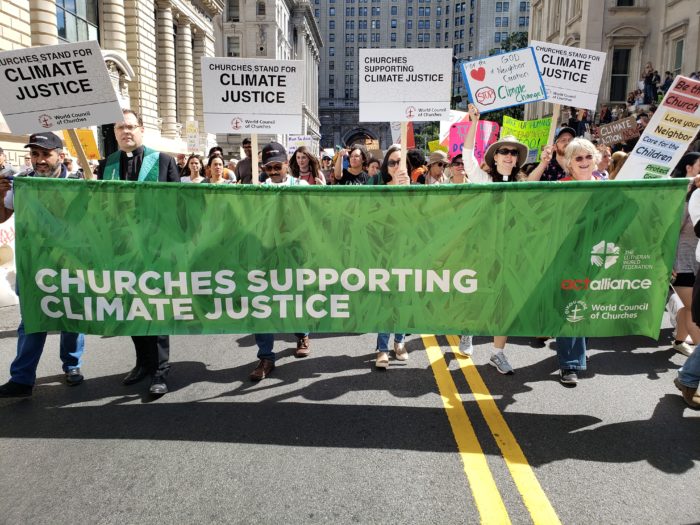
As states gather at the United Nations for the Climate Action Summit, taking place on 23 September, the ACT Alliance, Lutheran World Federation and World Council of Churches, which together represent 580 million Christians globally, are strengthening their collective call for climate justice and immediate action.
As we focus on the interconnectedness of God’s creation, our churches are urging governments worldwide to take stronger measures and present concrete plans to address climate change – now.
The world is facing the impacts of climate change at an increasing pace, escalating humanitarian needs, and leading to economic free-fall and trauma borne of violent natural disasters: Hurricane Dorian, Cyclone Idai, the Amazon fires, flooding in India, Bangladesh and Myanmar, drought in the Horn of Africa. There will be “a next disaster,” and the most vulnerable people—those who have done the least to contribute to climate change—are likely to face the brunt of its impact.
As people of faith, we call on the nations gathered at this summit to act ambitiously to address the impact of climate change, and to work with renewed vigor to keep global temperature rise below 1.5C. The time to act is now. Our care for God’s creation cannot afford more delay.
We shall do our part.
We call on our member churches, organizations, and communities to rise to this most important challenge of our time. We stand united against divisive forces that seek to negate scientific facts and silence the voices of women, of youth, of indigenous people and others who stand to lose everything as climate change ravages their lives and livelihoods.
We stand with the most vulnerable.
We call especially for action by developed nations to increase their ambition in meeting emissions targets, in providing financing, and in focusing on adaptation and mitigation for those most affected by climate change.
Climate change has become a climate emergency.
Deep-seated transformation must happen now.